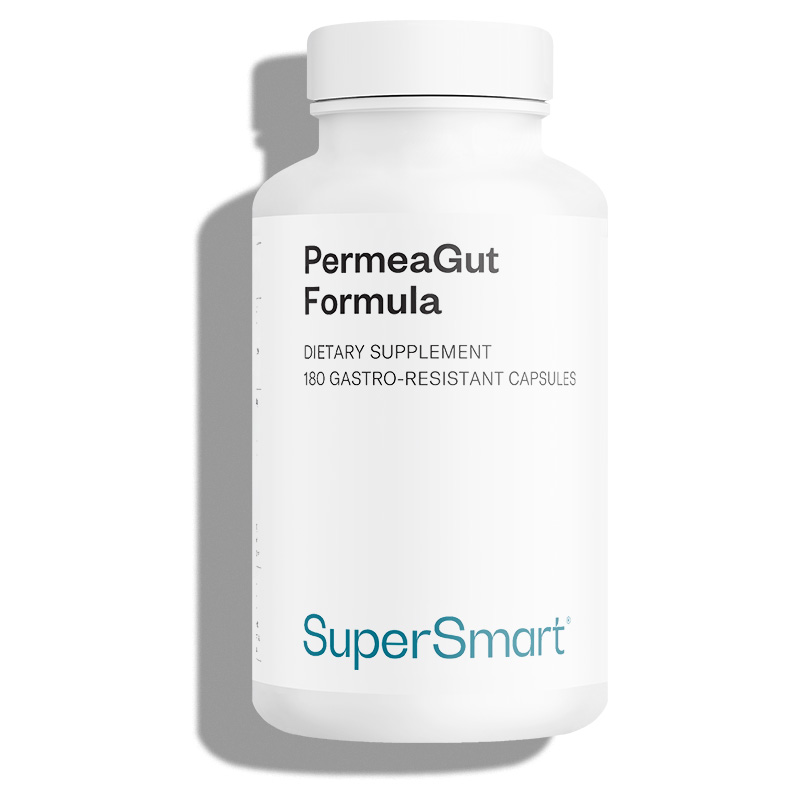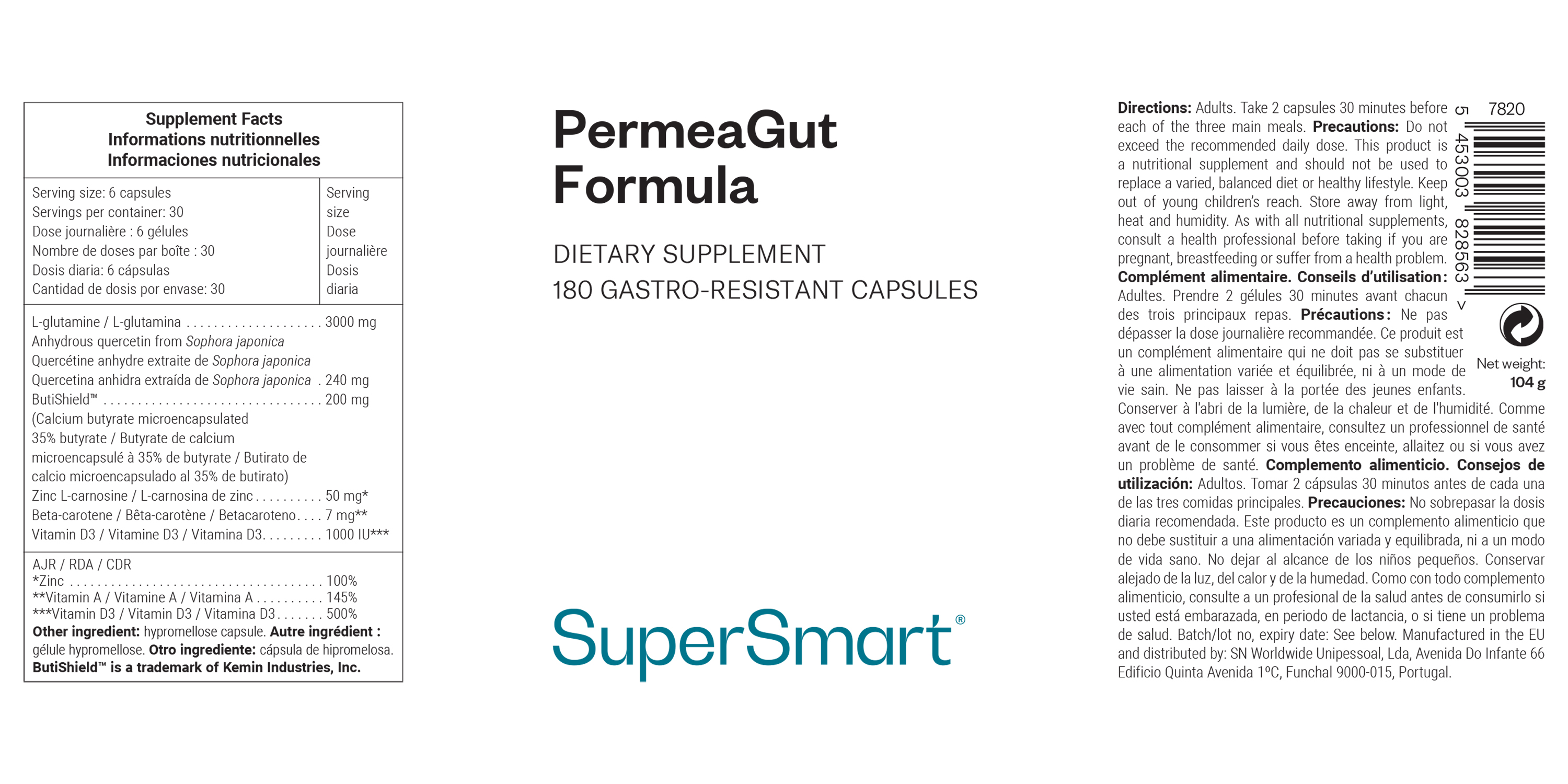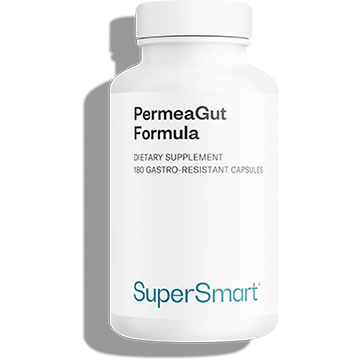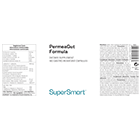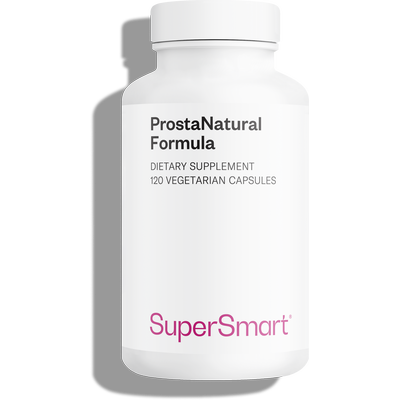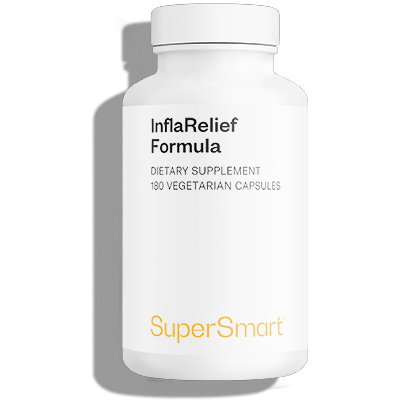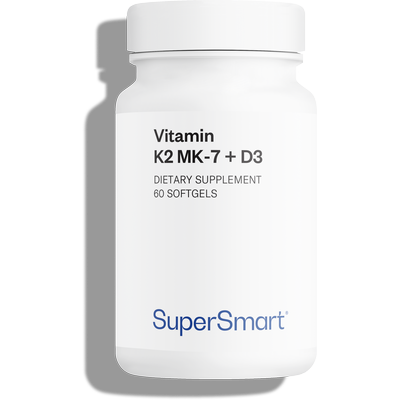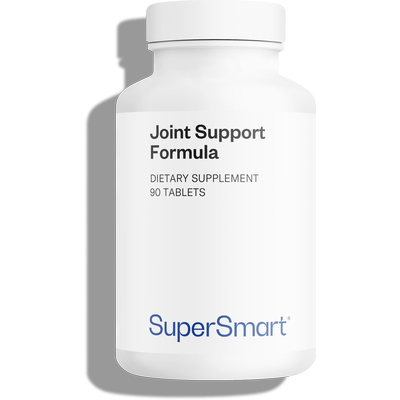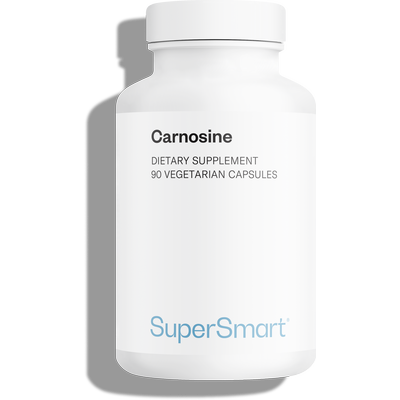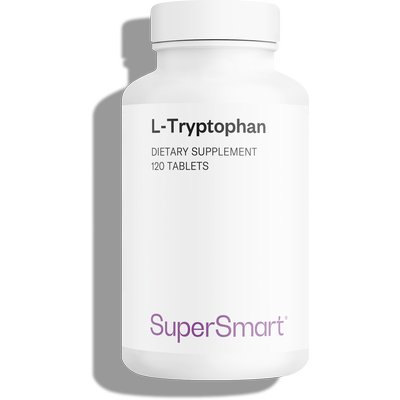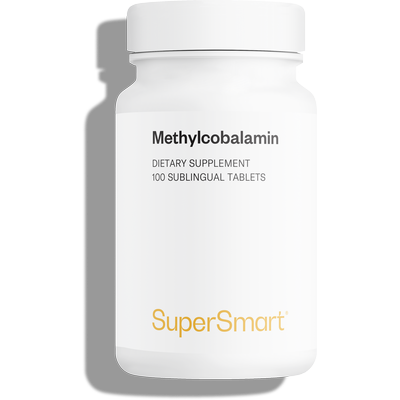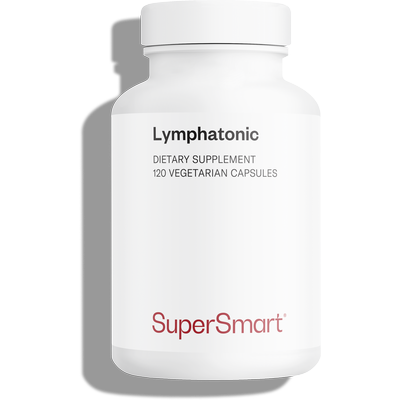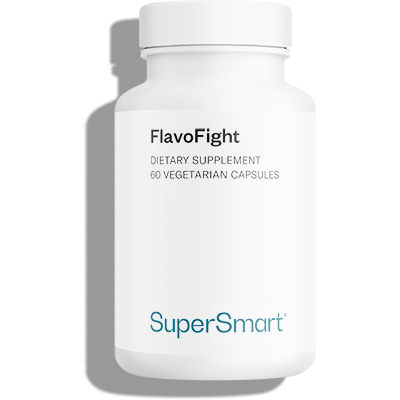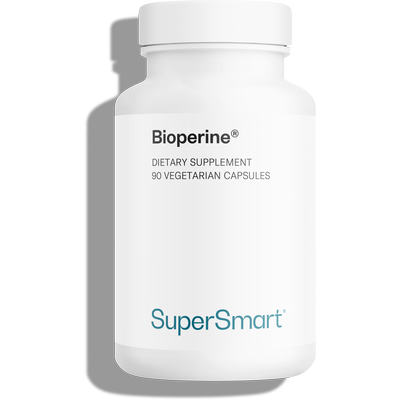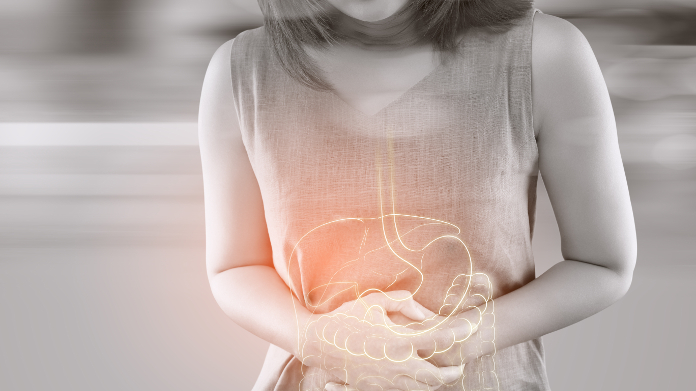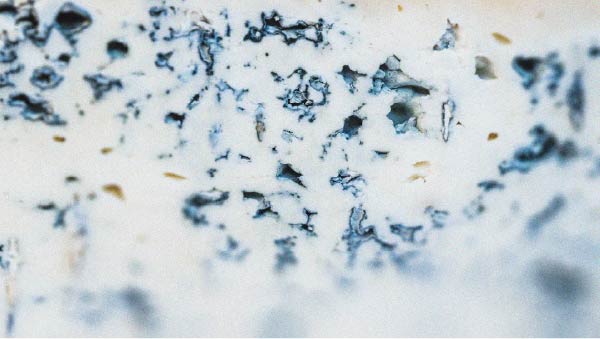Complete your selection
PermeaGut Formula food supplement combines the most effective nutrients studied in the field of protection and repair of the intestinal barrier.
Leaky gut is a term used to describe an excessive increase in intestinal permeability.
PermeaGut Formula is classified in our category dedicated to gastrointestinal health.
What natural treatment is there for leaky gut?
What is leaky gut, and how can it be treated?
Intestinal hyperpermeability or leaky gut syndrome refers to an alteration in the natural impermeability of the intestinal barrier caused by factors such as stress, an unbalanced diet, infections, certain medicines or dysbiosis (an imbalance in the microbiota).
The intestine becomes more porous, allowing undesirable substances (toxins, microbes, poorly digested food fragments, etc.) to enter the bloodstream, which can trigger inflammatory or immune reactions.
This abnormal increase in intestinal permeability is generally combated in several ways: adopting an anti-inflammatory diet and treating the underlying causes such as infections or microbial imbalances, and often combining these measures with natural food supplements such as glutamine.

Composition and benefits of our supplement dedicated to the integrity of the intestinal wall
With this in mind, PermeaGut Formula combines 6 nutrients that have been extensively studied:
- L-glutamine: an amino acid naturally produced by the body. It is the main source of fuel for enterocytes (the cells that line the intestine), increases the expression of intestinal tight junction proteins and influences the production of the mucins that make up the intestine's mucus layer. These actions explain why it helps to keep the intestine watertight. Several clinical studies have observed the effects of glutamine supplementation on intestinal permeability and modulation of the inflammatory response (1-5).
- L-carnosine zinc: an essential mineral, zinc helps protect cells against oxidative stress, which helps maintain the integrity of the cells in the intestinal mucosa. It also contributes to the normal functioning of the immune system, which regulates inflammation. Human studies have shown that zinc-L-carnosine, in particular, may help repair intestinal tissues through its healing and regenerative properties (6-7).
- Butyrate: a metabolite studied for its potential to protect the intestinal lining by nourishing colonocytes (the cells that line the lining of the colon), strengthening tight junctions and promoting mucin production. ButiShield™ is an optimised, microencapsulated form of butyrate designed to resist premature breakdown in the small intestine, ensuring localised release in the colon. Microencapsulation significantly reduces the sometimes unpleasant odour of butyrate, and also ensures prolonged release of the active ingredient (8-10).
- Beta-carotene (vitamin A): in the body, beta-carotene is converted into vitamin A, which helps maintain normal mucous membranes, including the intestinal mucosa. Vitamin A is involved in the differentiation and renewal of epithelial cells, which play an important role in tissue health (11).
- Vitamin D3: also known as cholecalciferol, vitamin D3 contributes to the normal functioning of the immune system, helping to avoid excessive inflammatory responses. Clinical studies also suggest that it is involved in cell differentiation and influences the composition of the microbiota, thereby supporting intestinal integrity (12-14).
- Quercetin: a powerful flavonoid that has been studied for its potential ability to modulate the immune response (helping to prevent defensive cells from attacking the body's tissues), influence the expression of zonulin (a protein that regulates the opening of junctions between cells in the intestinal mucosa) and reduce oxidative stress, all of which are involved in preserving the integrity of the intestinal wall. Quercetin also appears to act as a natural anti-histamine, helping to limit allergic reactions caused by a porous intestine (15-17).
4 key benefits of our food supplement for the intestinal barrier
PermeaGut Formula's synergistic formula has 4 key strengths:
- its novel formulation with a multifactorial approach: this unique synergy of ingredients has been designed to act simultaneously on the integrity of the mucosa, inflammation, immune modulation and allergic responses;
- its rare, highly dosed ingredients: unlike many generic formulas, this supplement includes uncommon active ingredients such as ButiShield™ butyrate or L-carnosine zinc, at physiologically relevant dosages;
- its packaging in gastro-resistant capsules: each capsule is designed to resist stomach acid and release the active ingredients directly into the intestine, where they take effect;
- its absence of unnecessary additives: the capsules are vegetable-based (made from hypromellose) and contain no controversial excipients, ensuring optimal digestive tolerance.
What is in PermeaGut Formula
Any questions?
Our team of nutrition experts and scientists has the answers.
Leaky gut often presents itself as bloating, constant tiredness, food intolerances or skin disorders.
To clarify the situation, it's best to consult a gastroenterologist, who can prescribe special tests and make a diagnosis.
For example, high levels of zonulin may suggest hyperpermeability.
The main foods suspected of promoting intestinal porosity are:
- ultra-processed foods (ready meals, sugary cereals, chocolate bars, soft drinks, salty snacks, etc.)
- gluten (white bread, pasta, pastries, biscuits, pizza, etc.), especially if you are sensitive to gluten
- excessive alcohol (beer, wine, spirits, sweet cocktails, etc.)
- certain industrial dairy products (UHT milk, processed cheeses, flavoured yoghurts, dessert creams, etc.)
- refined oils rich in pro-inflammatory omega-6s (sunflower oil, corn oil, soya oil, industrial margarines, etc.)
Treating leaky gut generally involves:
- reducing consumption of irritating foods (ultra-processed foods, gluten, excess alcohol, etc.)
- better management of stress, which can alter the intestinal barrier via the intestine-brain axis
- personalised follow-up with a practitioner trained in digestive health
- treatment of the underlying causes (microbial imbalances, intolerances, infections, etc.), which must be assessed on a case-by-case basis
These various measures are usually accompanied by nutritional supplements such as glutamine or zinc, whose benefits are mentioned above, as well as probiotics, which contribute to the balance of the intestinal microbiota and therefore to the general health of the intestine.
As well as taking PermeaGut Formula, we recommend that you opt for a probiotic to help balance your intestinal microbiota. This balance is essential for the production of butyrate, a fatty acid known to repair the intestinal barrier (Colon Friendly probiotics, but also Bacillus Coagulans, Bifidobacterium Longum, Lactobacillus Rhamnosus GG, Probio Forte and Full Spectrum Probiotic).
Also, select a source of fibre low in FODMAPs to nourish your good bacteria without irritating your intestines. Ideally, choose psyllium husks (for example with Psyllium Husk) for this purpose.
january 12 2026
pas encore de retour car l'intestin ne se répare pas très vite. il faudrait attendre au moins le 3eme mois
not yet back because the intestine does not heal very quickly. it would be necessary to wait at least until the 3rd month
 see the translation
Translated by SuperSmart - see the original
see the translation
Translated by SuperSmart - see the original
december 3 2025
moi qui a des problèmes intestinaux , c'est un produit qui me convient parfaitement
I, who have intestinal problems, find it a product that suits me perfectly.
 see the translation
Translated by SuperSmart - see the original
see the translation
Translated by SuperSmart - see the original
october 29 2025
Seulement 15 jours de traitement à ce jour,donc pas assez de recul pour juger de son efficacité
Only 15 days of treatment so far, so not enough perspective to judge its effectiveness.
 see the translation
Translated by SuperSmart - see the original
see the translation
Translated by SuperSmart - see the original
october 13 2025
Excellents Produits je recommande
Excellent products I recommend
 see the translation
Translated by SuperSmart - see the original
see the translation
Translated by SuperSmart - see the original
october 3 2025
Ça m’a beaucoup aidé à diminuer l’inconfort des inflammations diverses dans l’intestin.
It helped me a lot to reduce the discomfort of various inflammations in the intestine.
 see the translation
Translated by SuperSmart - see the original
see the translation
Translated by SuperSmart - see the original
Need help?
of experience
your money back
##montant## purchase

